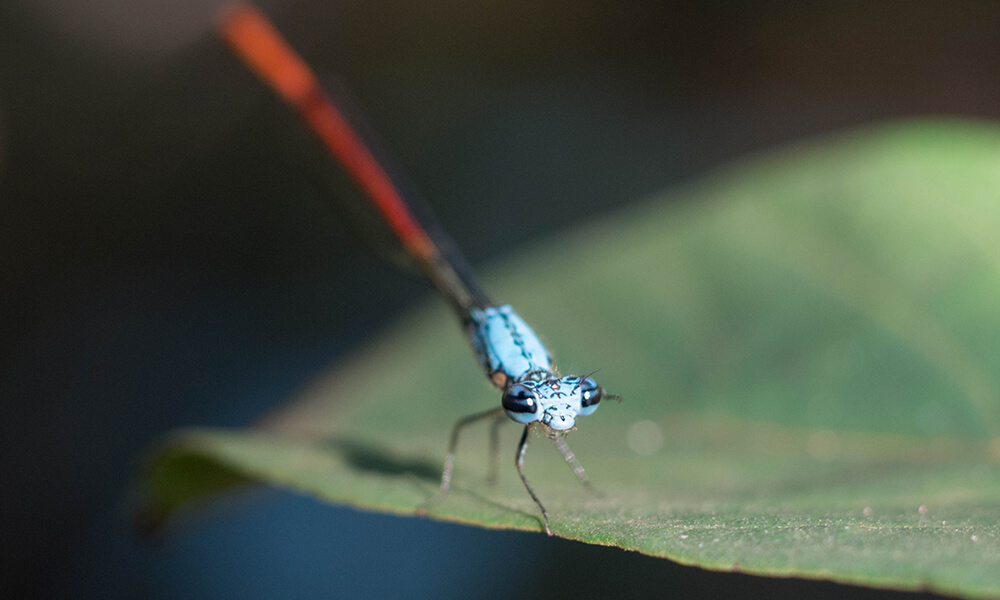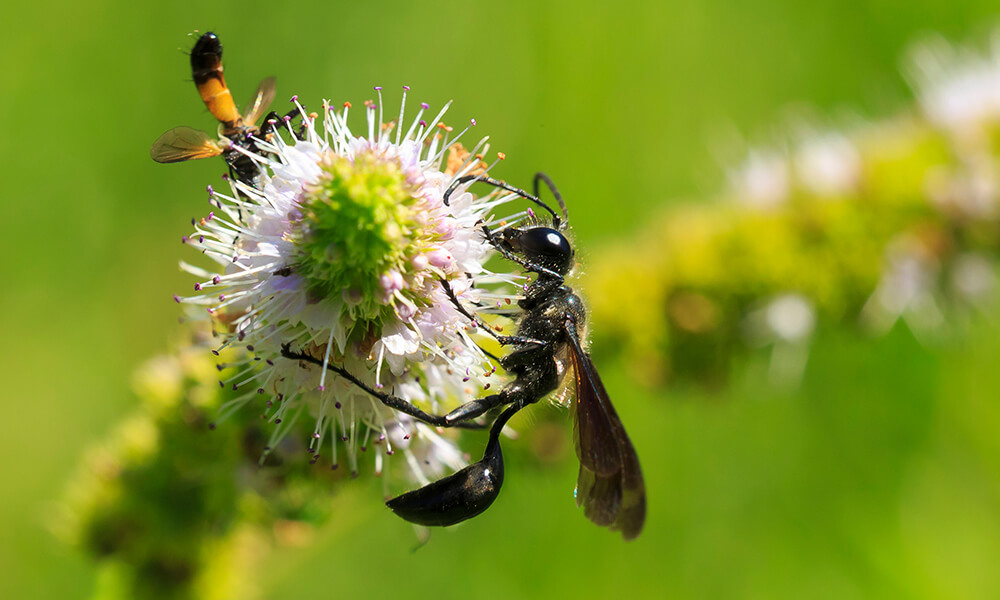You Want These Bugs On Your Crops
There are plenty of insects you don’t want on your crops, and many farmers and home gardeners spend time and money trying to keep their crops insect free. What if we told you that there are actually plenty of creepy crawlies in the world you want on your crops? That’s exactly what we’re here to do this week. We’re walking you through a few of the bugs your field will enjoy, and why they help your plants grow.
Braconid Wasps
Female braconid wasps inject eggs into host insects, such as caterpillars, moths, beetle larvae, and aphids. The host dies once the larvae have completed development, leaving your crop free of those pesky pests. Small nectar plants with flowers such as dill, parsley, wild carrot, and yarrow, will bring them to your smaller gardens.

Damsel Bugs
Having plenty of damsel bugs in your alfalfa fields with a sweep net will help protect your crop against aphids, small caterpillars, leafhoppers, and thrips.
Ground Beetles
Ground beetles are nocturnal and prey on slugs, snails, cabbage maggots, and other pests that live in the soil of your fields. They are rather large and long-legged, and help protect vegetables. To attract these ground beetles, plant perennials along the edges of your field or white clover as ground cover in orchards.
Lacewings
Adult lacewings and their larvae eat aphids, caterpillars, scales, and whiteflies. To invite lacewings to your garden, plant coreopsis, cosmos, and sweet alyssum and watch the pests begin to vanish.
Lady Beetles
As adults, lady beetles eat aphids, mites, mealybugs, and plenty of other insects. Oddly enough, their hungry larvae do more damage to garden pests than they do as adults. Keeping angelica, coreopsis, dill, fennel, and yarrow will keep your crops full with lady beetles.
Hover Flies
Often confused with wasps or bees, the hover fly are very similar to lacewings. They live in tight places, and feed on aphids. If you’re hoping to grow larger raspberries or strawberries, keeping hover flies on your crops will help achieve this as they appear in early spring and begin immediately protecting the garden.
Predatory Bugs
Don’t let the name intimidate you from inviting these little guys to your backyard or fields. They destroy thrips, spider mites, corn eat-worms, leafhopper nymphs, and small caterpillars. Planting shrubs and bunch grasses will encourage them to stop by your crop.

Wasps
If you have small kids or adventurous pets, wasps might not be the best addition to your garden. However, it’s undeniable that wasps are a blessing to any garden. They attack the eggs of all sorts of pests, acting as an immediate barrier to the pests before they even hatch on your crop.
Spiders
We don’t want spiders in our homes, but in the garden, they’ll keep any pest outbreaks at bay. Most spiders are not poisonous, and feast on any and all small creepy crawlies in your outdoor areas. Planting straw mulches or certain perennial plants will help attract spiders to all the right places.
Dragonfly
Like many of these other insects listed, dragonflies help keep aphids and other pest bugs away. Dragonflies are of particular interest for people who spend extended periods of time outdoors, because they like to snack on mosquitos, keeping the mosquito population under control.
Honeybees
While honeybees don’t act as an army against harmful insects, they do help pollinate your fields and gardens better than most other pollinating insects out there. Honeybees help keep your garden alive and well, and without these insects, your plants wouldn’t look the same. You can also invest in a hive box to keep the bees near your plants and collect homemade honey at the same time!
Tachinid Flies
Often mistaken for house flies, the tachinid fly is more colorful and is a natural enemy to tent caterpillars, cutworms, armyworms, gypsy moths, squash bugs, and other insects that like to snack on your beloved vegetable garden.
There are plenty of lists available providing gardeners and farmers with beneficial insects for their garden. It’s important to understand which creepy crawlies to hate and which to provide proper gardens for. Visit our blog for more tips and tricks on everything farming, and visit Crop Insurance Solutions to talk about insuring your fields in the future!
